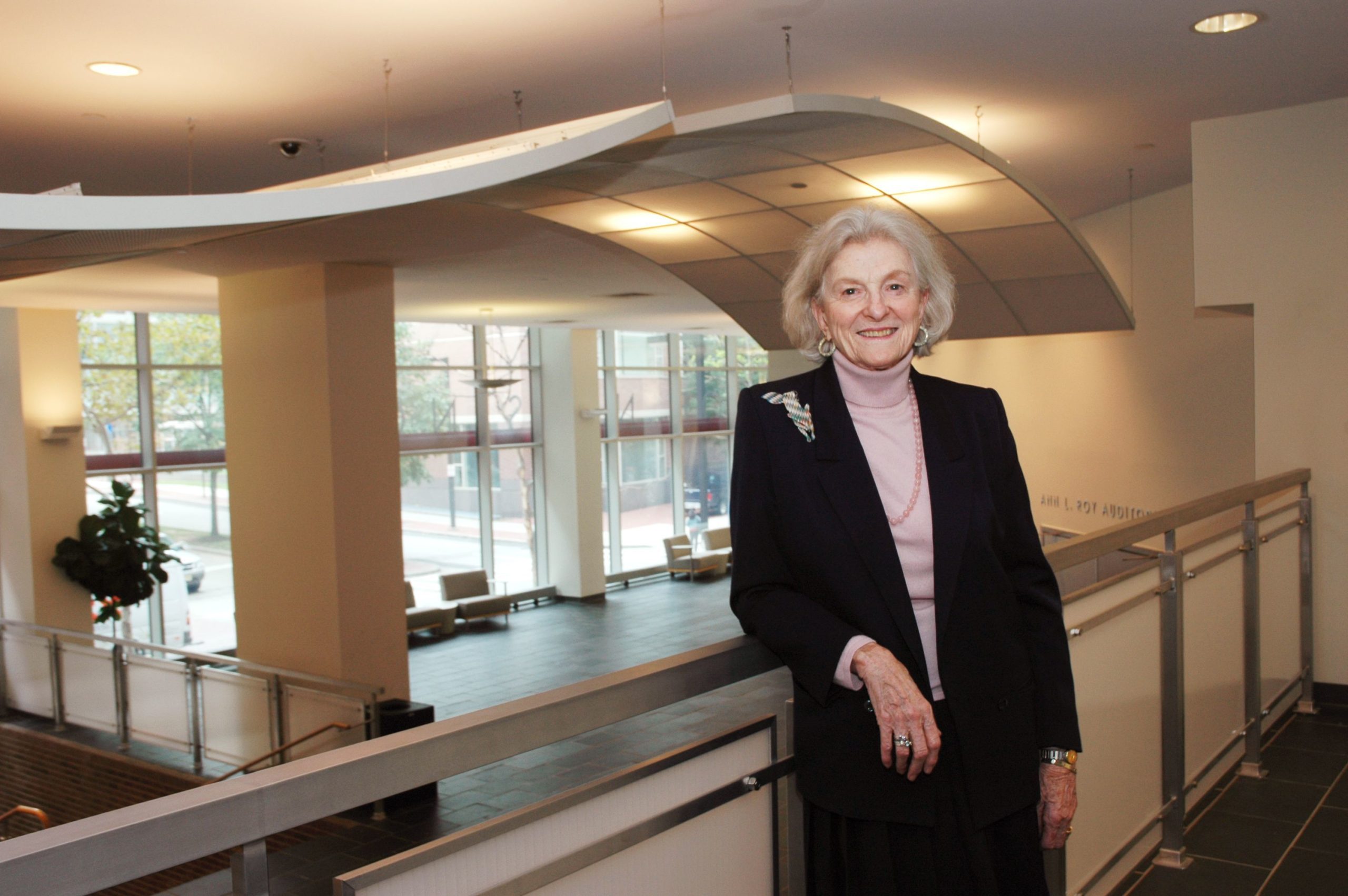Nursing is home to a devoted group of people that spend their lives in the service of others. Claire Fagin, PhD, RN spent her lifetime diligently in service to others. She passed away on January 16, 2024. At the age of 97 she left behind a permanent imprint of vision, determination, and courage on the nursing community. She was an innovator in nursing education, an author, an educator, a leader, and, above all else, a nurse.
Fagin was born in New York City in 1926 and came of age at the height of World War Two. Like many young folks, during the war she had a strong desire to serve. In a 2004 interview, posted on YouTube, with Katherine J. Densford, Fagin shares that she was “very, very hip about trying to serve somehow during WWII, and I was too young, and certainly too young to join any service…” though she had started college when she was sixteen; she had no clear goals of what she wanted to do.
Her desire to serve during the war was further enticed by the large ad campaign and posters that were everywhere in NYC at the time. The reasons a career path is chosen are as varied as the individuals that make them. For Fagin it was the recruiting campaign of the Cadet Nursing Corps. More specifically it was the blonde model they were using “that really attracted me, since I had hair color pretty much the same,” she said with a self-deprecating laugh. She entered the New York City Nursing Counsel for War Service office and spoke with the recruiter. That conversation gave her already ambitious mind a goal to pursue.
Across her career arc she tackled many issues. Many people are old enough to remember when hospitals had strict visiting hours. Whether you were a parent or relative of a loved one in the hospital was irrelevant, when visiting hours were over, you were forced out. Fagin’s dissertation in the mid-sixties challenged that policy and she was a driving force in changing that rule nationwide.
In 1992 she published “Charting Nursing’s Future, Agenda for the 1990’s,” designed as a guide to address the role of the nurse regarding the complexities of working with the public. In 1996 she confronted the proliferation of profit in healthcare with her book, “Abandonment of the Patient: The Impact of Profit Driven Health Care on the Public.”
She was an ardent supporter in raising the standards of education for nursing and strove to make a bachelor’s degree the minimum standard. According to the American Association of Colleges of Nursing, “as of 2022, 71.1% of the RN workforce earned a baccalaureate or higher degree.” Her numerous awards and recognition that she accumulated over her lifetime are a tribute to her passion to the growth of her profession. “It’s amazing, really amazing how any field that you choose in that way could have been as totally and completely satisfying as this field has been for me.”

